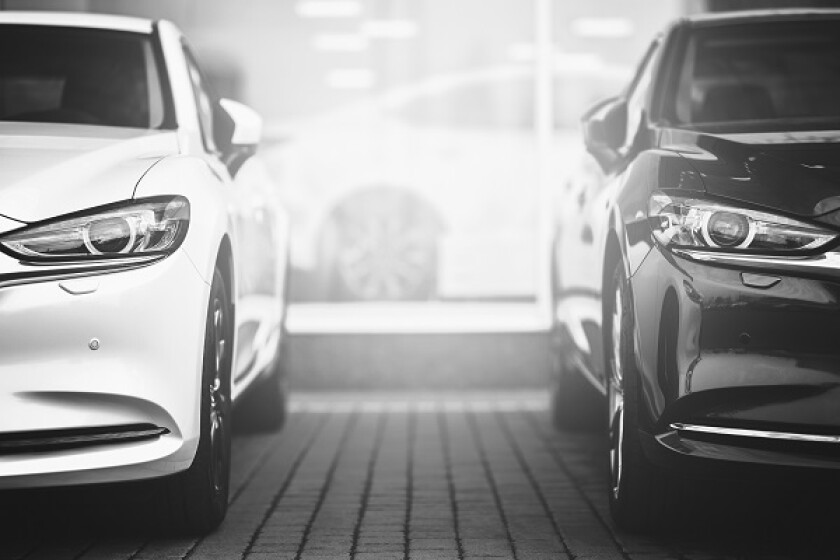Understanding automotive brand value
In the Forbes' 2020 list of the World's 100 Most Valuable Brands, technology brands dominate with a 20% share. However, 11 automotive brands make the list too – Toyota, Mercedes-Benz, BMW, Honda, Audi, Porsche, Chevrolet, Ford, Lexus, Hyundai and Volkswagen. The majority trace back their origin to more than a century ago; what's more, though all sell the same product (unlike tech brands Amazon, Google, Facebook etc.), each brand has a distinct personality.
So what makes automotive brands so powerful and enduring? Studies reveal that consumers undertake substantial research before purchasing a car as it is often perceived to communicate its owner's sense of self-worth (second only to a home). Research also suggests that when a consumer attempts to match a brand with personal aspirations, lifestyle or emotional imagery conveyed via advertising is not the driving factor. Rather, auto brands are evaluated in terms of their reputation for "product excellence relative to their total cost of ownership." Such reputation is pegged to actual consumer experiences of the underlying product. Thus, unlike categories such as retail, or consumer goods, building brand reputation in the automotive sector is a lengthy and complex affair. Equally, once consumers form a positive association with a brand, and experience its performance over time, the value associated with the brand also lingers and endures – so much so, that it is then perceived to imbue models both old and new.
Indian narrative
Narrowing focus to a single jurisdiction – India – its most valued brand (source: Brand Finance) in 2020 is the Tata group, a multinational conglomerate with origins in 1868, the country's largest automotive manufacturer (dominates the commercial vehicle segment with a more than 40% share), and owner of the iconic British company Jaguar Land Rover.
The Mahindra Group, which like Tata is a diverse business with an automotive arm, is India's seventh most valuable brand. Interestingly, it is a pioneer in the field of electric vehicle technology with India's first electric car Reva in its stable. Reva was launched in 2001 and sold worldwide – customers in 26 countries (especially in the UK, where it was named G-Wiz) have driven it more than 200 million kilometres, absolutely emission free. Mahindra rebranded the car as e2o in 2013 and has since introduced an electric powered rickshaw (tuk-tuk), three wheeler, sedan and cargo van.
The third mention of an automotive brand in the survey comes in at number 19 – Maruti Suzuki – which deserves elaboration.
Before 1982, India was a closed market and choice of vehicle was usually limited to the bulbous Ambassador (manufactured by Hindustan Motors) or a version of the Fiat 1100 (manufactured by Premier Automobiles under licence from the Italian carmaker). That year, a joint venture agreement was inked between the government owned Maruti Udyog and Suzuki Motors of Japan which marked an inflection point. The demand for cars was pegged at 40,000 units a year in 1983, however, with the introduction of Maruti's first model, known as the 800, the passenger vehicle market in India surged 275% over the next four years, and demand has continued to expand ever since. Today, India is the fourth largest automobile market and all major auto brands have a presence in the country; yet, even three and a half decades later, more than half the number of cars sold in India continue to wear a Maruti Suzuki badge.
The statistics are interesting. In 2020, the share of Maruti in the passenger car sales market was 53.1%, Hyundai's and Mahindra's was 17.6% and 6.5% respectively. Tata followed with a 4.8% share, Toyota was fifth with a 4.1% share, behind which was Honda at 3.7%. No other automaker in the world's largest vehicle markets has matched Maruti Suzuki's dominance in India. Nor has the gap in market share between the top two players in any individual market been as wide.
How does Maruti account for its enduring primacy? Is it its first-mover advantage? Local sourcing and economies of scale? Perhaps it is the continuous launch of new products to meet consumer expectations as well as its unmatched nationwide, extensive service network – no mean feat in a country with the world's seventh largest land mass. Also, the Indian consumer is extremely cost conscious and wants world class products at Indian prices. Ever since it launched the small, superior, reliable and affordable 800, Maruti has always tapped very well into this sentiment.
Powerful brands always grow
The next chapter in automotive brands will belong to the makers of electric and autonomous vehicles – Tesla recently overtook Toyota in market valuation (though not in sales). In news from India, in 2019 Maruti Suzuki and Toyota began a partnership that would equip Toyota with the ability to come out with frugal compact cars and Suzuki to benefit from Toyota's technological edge in making hybrid and electric vehicles. At the moment, India's electric vehicle market is just taking off (autonomous vehicles are some time away) and is miniscule compared with markets in China, Europe and the US. Tracking brand value in this context should make for an interesting exercise in the days ahead.

|
Bisman Kaur |












